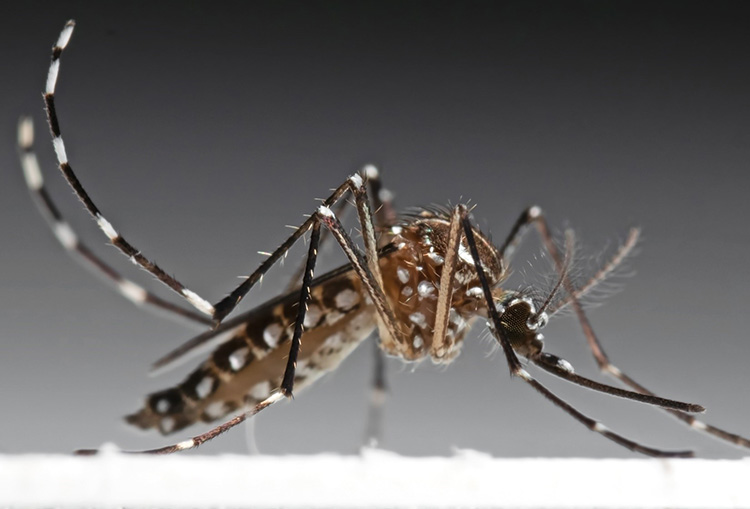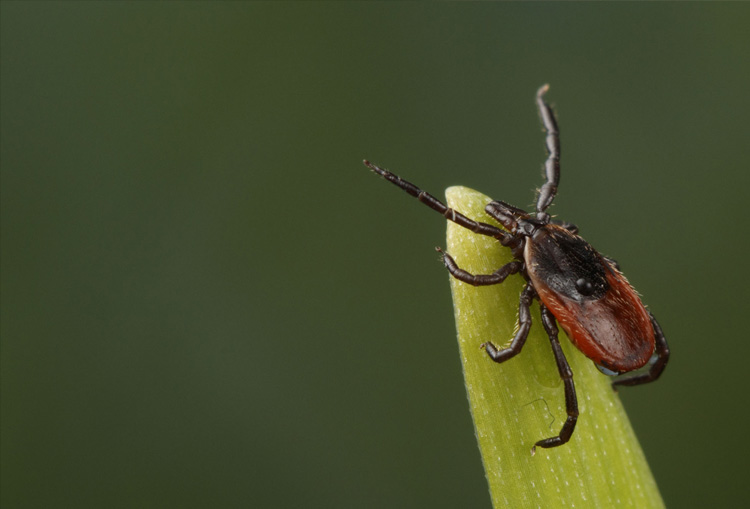Established in 2016, the Southeast Regional Center of Excellence in Vector-Borne Disease: The Gateway Program (SECVBD) will continue its work for another five years, thanks to renewed funding from the Centers for Disease Control and Prevention (CDC).
“The center is a team effort to help communities prevent, prepare and respond to vector-borne disease threats through applied research and education efforts. We look forward to continuing to inform these public health actions,” said Rhoel Dinglasan, the center’s director and a professor in the University of Florida College of Veterinary Medicine affiliated with the UF Emerging Pathogens Institute.
The renewal process was competitive and full support was not guaranteed, so ”We were thrilled with the news of receiving $10 million over the next five years to support vector-borne disease surveillance, research and control in our region,” Dinglasan said.
Based at the University of Florida, the SECVBD includes an interdisciplinary team of researchers from UF, the University of South Carolina, University of North Carolina at Chapel Hill, Florida International University, University of Miami, Old Dominion University, and Ponce Health Sciences University in Puerto Rico, who work alongside leaders of state public health and mosquito and tick control agencies in the Southeast.
At UF, the center’s members include researchers in UF/IFAS, the College of Liberal Arts and Sciences, the College of Veterinary Medicine, and the Emerging Pathogens Institute.
Over the last five years, the center has gained a reputation as a go-to source for quality, research-based training, and best practices for controlling the harmful viruses, parasites and other pathogens spread by mosquitoes, ticks and kissing bugs.

One of five of the CDC’s regional centers of excellence in vector-borne diseases originally established in 2016, the SECVBD’s initial work came on the heels of the Zika epidemic in the United States. To help educate the public about the health threats posed by mosquitoes, which spread diseases such as Zika, the center partnered with the UF/IFAS Center for Public Issues Education and the Center for Online Learning and Technology to create educational tools public health professionals could use to inform their communities.
During that period, the center was instrumental in training the Puerto Rico Vector Control Unit, which was established following the Zika epidemic. In 2020, when outbreaks of dengue virus and West Nile virus coincided with another public health emergency, the COVID-19 pandemic, the center worked closely to support the Miami-Dade Mosquito Control District during the mosquito-borne virus outbreak response.
To date, the center has trained more than 1,000 vector-control professionals, military personnel and students to use integrated pest management to control mosquito- and tick-borne diseases in the Southeast, and the online trainings have become popular with those outside the region as well. The center has also collaborated with UF/IFAS to improve health in rural and agricultural communities by educating migrant agricultural workers in Florida about Chagas disease, which is spread by kissing bugs, as well as increase awareness of how these diseases such as Chagas can also affect companion animals.

“Our work in communities and with our stakeholders is part of what we call a ‘one health’ approach in which we look at solving public health issues in terms of the larger social and environmental context,” Dinglasan said.
On the research front, the center’s faculty have published over 100 peer reviewed, open-access studies and have filed four patents for compounds that make insecticides more effective against insecticide-resistant mosquitoes. The center has also developed new lures and traps for the Aedes aegypti mosquito, a species responsible for spreading several mosquito-borne diseases.
Dinglasan said that moving forward the SECVBD is well positioned to meet existing and future threats posted by disease-carrying organisms.
“Based on our unique climatic environment, proximity to the Caribbean, Central and South America, and a booming tourism industry, Florida itself is a hotspot for vector-borne diseases. Additionally, with climate change and increased urbanization across the country, we are seeing the expansion of multiple diseases (and their vectors) northwards. We are also seeing the converse where tick vectors are also spreading south into our region from the Northeast,” he said.
The center will increase research and outreach activities related to the spread of tick-borne diseases in the southeastern United States with the aim of generating a better understanding of where ticks and tick-borne infections are appearing in the region and how this can inform control measures. Tick research will also investigate alpha-Gal syndrome in humans, a tick-associated meat allergy that has been recently documented with increasing cases in the Southeast.
Over the next five years, because of its importance to the Southeast, the center will also continue research on insecticides that can kill insecticide-resistant mosquitoes, while also developing mosquito surveillance techniques that can proactively prevent outbreaks of mosquito-borne diseases, Dinglasan said.
Top photo by Sean McCann
 0
0
